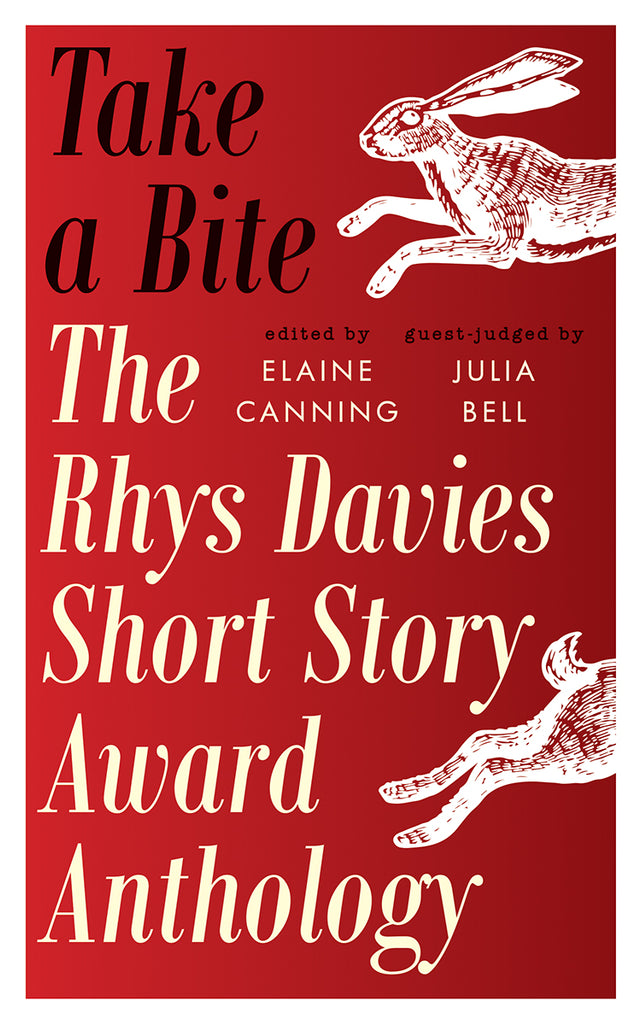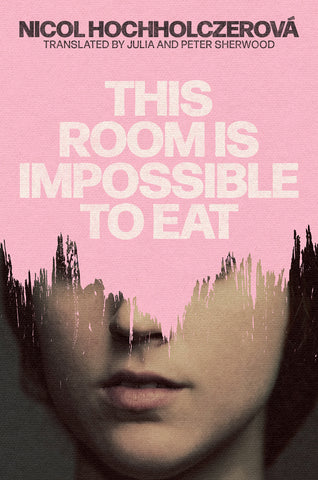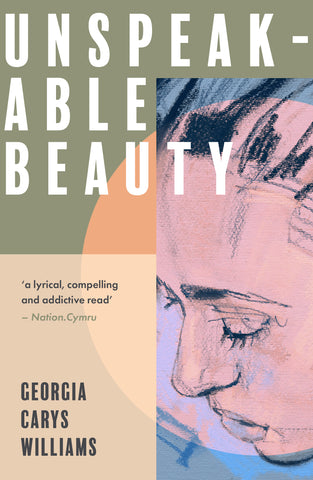Rhys Davies was one of the most prestigious and acclaimed Welsh prose-writers who wrote in English. Contributing over 100 short stories and twenty novels, he dedicated his life to writing. In 1991, the Rhys Davies Short Story contest was established. It was a prize for the best unpublished short stories written by those aged eighteen or older who are living in, or from, Wales. There have now been nine competitions to date and this year’s was run by Swansea University’s Cultural Institute, in association with Parthian Books.
Swansea-born Naomi Paulus was the winner of the 2021 Rhys Davies Short Story Competition for her story ‘Take a Bite’. The story recounts Rhian’s experience, amidst the energetic buzz of her mother and sisters, as she returns home for a funeral. Guest judge Julia Bell described it as a “delightful, wistful, satisfying piece”.
I caught up with Naomi to ask a few questions about her triumphant experience winning the Rhys Davies award, and her writing experience in general.

To ease us in, can you introduce yourself and explain your writing history?
Well you know my name, Naomi Paulus, and that I’m Welsh. In addition to those facts, I’m also a thirty-one-year-old working in ‘digital media’ in London with a degree in Philosophy. I spent most of my twenties, and much of the previous decade, thinking I could never be a writer so I don’t have much of a history in that respect. Whilst I was academic at school, I come from a family of dyslexic scientists, so even philosophy was seen as somewhat of a teenage rebellion. In 2019 I saw an advert for a writing competition – the Primadonna Prize – that explicitly promised to ignore spelling and grammar and I thought to myself: I could probably write 500 words (albeit emotively peppered with punctuation in wild abandon). To my shock, I was long listed that year and have been every year since. Over lockdown I found more time to write longer pieces and I decided to enter the Rhys Davies competition because I work well to deadlines.
Take a Bite includes a large family. What inspired your choice of a family environment? Is the beautiful chaos of the overlapping speech influenced by your personal experience?
My grandmother, who died last year, was the youngest of fourteen children and grew up in Clydach before moving to Ystradgynlais. Her and her sisters were the direct inspiration for the family in the story. She used to pick me up from school with a shiny red apple from Swansea Market, that matched both her hair and her nail colour, hold it out and say, “Make a wish, take a bite.” She was, what some have called, a ‘character’.
In the current generation, I have two siblings and five cousins; it’s fair to say that it’s loud when we are all together. However, you grow up thinking that your family unit is completely normal and it’s only when you leave that you start to compare it with other environments. The comparison initially brings horror and embarrassment, but then as you get older you start to embrace the quirks of your home life (mainly because you’ve left). The overlapping conversation style is something I have come to love, because what can originally appear as brash, confrontational, and even rude with all the constant interruptions, is actually so full of care and attention. The conversation between the sisters was where the story started for me.
Identity and secrets also seem to be a lurking theme within the story. Was there a particular message you wanted to put across?
I was writing the story having returned to Wales for the longest period in my adult life, since leaving for university. I was in my family home and I was seeing my hometown in a new light, one you can’t see as a teenager. I was thinking about identities: how the inability to escape who you are intersects with the desperation young people feel to carve out something new. I was thinking about this push and pull around identity and I actually felt a lot of shame. I was teased for the way I said certain words at university, e.g. ‘heard’ and ‘whole’, so I lost my accent. It meant that even though I was back in my hometown, people interacted with me as a visitor, and I didn’t like it. I channelled these thoughts into Rhian who is revisiting her home after some time away.
There are secrets that lurk beneath the surface conversation because I am interested in what is unsaid; even though there is constant chatter the most important communication is nonverbal. But for me, the story is about how society views certain middle-aged women. The busybodies and blabbermouths that are actually doing an incredible amount of unpaid labour in communities behind the scenes, but are disregarded for fussing and gossiping. Seen as talking constantly with nothing particular to say. If you really listen, they have interesting stories and important things to say. I called it ‘Take a Bite’ because they are baking but also because I was daring you to make fun of them.
Congratulations on your win! Has winning the Rhys Davies award impacted on your writing since?
Thank you. Since life has returned somewhat to normal, and I’ve re-entered the Soho brunch scene, I have had less time to write. However, what the award has done for me is given me the confidence to continue writing. It has told me that it’s worth setting aside more time to dedicate to learning this craft and that I should probably find another deadline to work towards to keep me on track.
Do you have a favourite short story in the anthology?
I have enjoyed all the stories in the anthology. It’s a fantastic collection, woven expertly together by Julia and Elaine. The themes that thread through the stories are fascinating and it’s particularly interesting how themes around lockdown, and the recently unprecedented times, impact the subject matters everyone has chosen.
Do you have any future projects you are particularly excited to be working on?
From my first 500 words, to these 5,000 words, I am slowly working my way up to a novel. I have 50,000 words I wrote in lockdown last year that I haven’t touched for ten months, and I think I might hate. I’d like to find time to return to that.
If you could give any advice to an aspiring short story writer, what would you tell them? What was the best writing advice you ever received?
If it’s not already clear by my response time to these questions and above references to deadlines, I have a tendency to procrastinate. So the best advice I’ve had is that you can’t edit a blank page. Just write something, anything, and it will come eventually. I’m not much of a planner so when I have a small seed of an idea I just write and see what happens, then that grows into more ideas. You don’t need to be at your desk in your favourite jumper with the exact right amount of coffee, lighting and a crystal, you just need to put pen to page or fingers to qwerty. Though I often find a gin and tonic helps to set the mood. I need to take this advice more.
Naomi’s winning short story can be found in Take a Bite: the Rhys Davies Short Story Award Anthology, available here. Other stories within the anthology focus on themes of family dynamics, loneliness in lockdown, and realisation. Together, the stories play with language, characters, and Welsh writing traditions, to create stories that move you.
MEGAN DAVIES



